This year, Columbia Public Schools’ high school students are prohibited from having cell phones in all learning environments. This policy was implemented due to the desire of providing “impactful learning opportunities for our students.”
It is no secret that phone addiction has been rising in the past few years. The difficulty of the phone policy highlighted the unspoken addiction that thousands of teenagers have. According to the Pew Research Center, “More teens say they spend too much time on their phone or social media than say they don’t spend enough time on them.”
Junior Giselle Rodriguez-Alvarez believes that phones were an issue prior to the policy.
“Most of the time [students] were just on their phones,” Giselle said.
Assistant Principal Anna Rorvig led a cell phone policy presentation for freshmen on jumpstart day. During this presentation, freshman Travis Wilson suggested that students leave their cell phones at home to resist the temptation during class time.
“What a smart young man,” Rorvig said in response.
Teachers and administration applauded Travis for his input.
Travis does not own a phone.
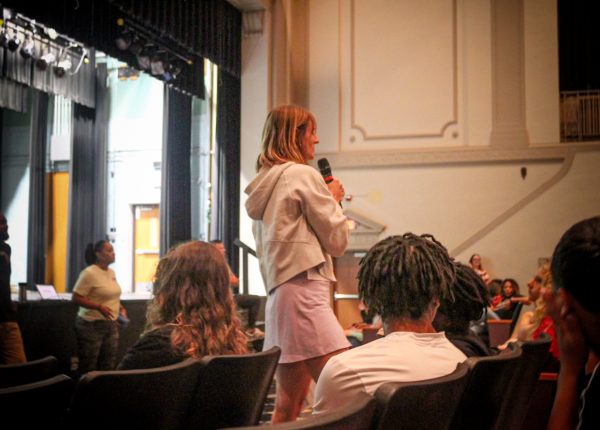
“My parents have always taught me that screens make your brain into mush. And that they don’t make you think right,” Travis said. “Cell phones make your life harder.”
Travis realized the hardships because he witnessed them himself.
“My brother is addicted to his cell phone and he’s 11,” Travis said.
Others began to speak up about the difficulties regarding teenage phone addiction.
“I know [the policy] is a change and may cause anxiety but I firmly believe after a period of adjustment, this will be positive in many ways,” English teacher Ellen Wilson said in an email.
AP Literature and Composition classes watched ‘The Social Dilemma’ to “discuss the rationale behind the new procedure”. The film included scenes where family disputes occurred due to conflicting opinions on phone usage.
“If [your phone is] not that big a deal, don’t use it for a week,” one character said to her brother.
To help the brother overcome his addiction, his mother offered to buy him a new cell phone screen in exchange for not using his cell phone for a week. He eagerly agreed, but ended up using the phone after three days.
The film portrayed the common struggles regarding cell phone addiction.
Junior August Shope noticed that students not in favor of the policy would attempt to “revolt by just not paying attention.”
Alternatively, Giselle observed positive changes in the classroom environment owing to the enforcement.
“They pay more attention…people participate more this year than they have [in] the past years, ” Giselle said.
For freshmen, the policy has shown to be more lenient for high school compared to middle school. Freshman Myla Lewis reflected that they were formerly not allowed to have their cell phones at all during the day, even outside the classroom.
Because the high school policy only mentions learning environments, Myla “[likes] the phone stuff now.”
Junior Madison Stanley agreed that the district’s policy is not as strict when compared to others.
“I don’t think the cell phone policy is awful…it’s better than some other schools where you can’t have it at lunch,” Madison said.
Some students have not found trouble dealing with the policy.
“I’ve handled it as [calmly] as possible…It hasn’t really affected me that much, because I’m not usually on my phone,” August said.
However, students have stress for hypothetical scenarios.
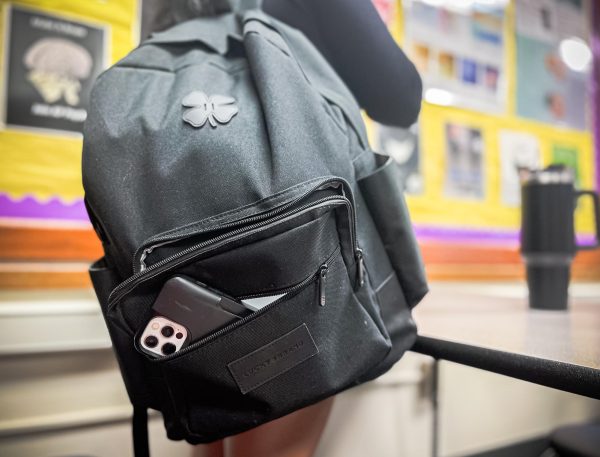
“If anything would ever happen, I would like to have my phone on me,” Giselle said.
Phones are to be in students’ bags, out of sight during class.
“Let’s say if there’s like an intruder…you [would] be running out without your phone and then you [could] be in the middle of nowhere,” Giselle said.
Beyond potential dangers, students feel that study halls should be treated differently than other classes.
Madison described it as “a bit crazy” that some study halls do not allow phone usage, with her study hall allowing it.
Yet, even in regular classes, Madison sometimes finds herself with nothing to do.
“I was in my US history class, and people were still finishing an assignment, and I had already finished it, and so did some other kids, and we just waited for like 15 minutes, just sitting, because we were not allowed to go on our phones,” Madison said.
Her teachers suggested reading a book, but Madison claimed that she is not a big reader, so she had no other option but to sit and wait.
“I just think when it’s the last couple minutes of class…we should be able to go on our phones,” Madison said.
In this technological generation, people are dependent on their phones. The convenience of mobile devices was known even nearly a decade ago.
Students and adults often use reminders, calendars, and other organizational scheduling applications.
“If you’re like me and can’t remember what you’re doing five minutes from now, having those in your phone so they alert you is really helpful,” Rorvig said.
Needless to say, phones are still required in everyday life.
Concerns on uncontrolled phone usage are not limited to our district; it is nationwide. According to the Pew Research center, “72% of U.S. high school teachers say cellphone distraction is a major problem in the classroom.”
Phones are still a common part of many people’s daily routines, so the adjustment has been difficult for some, but not all. Students are ultimately understanding of the cell phone policy, with the exception of study halls.
“[The cell phone policy] helps me focus. It’s not that big of a distraction,” Madison said.

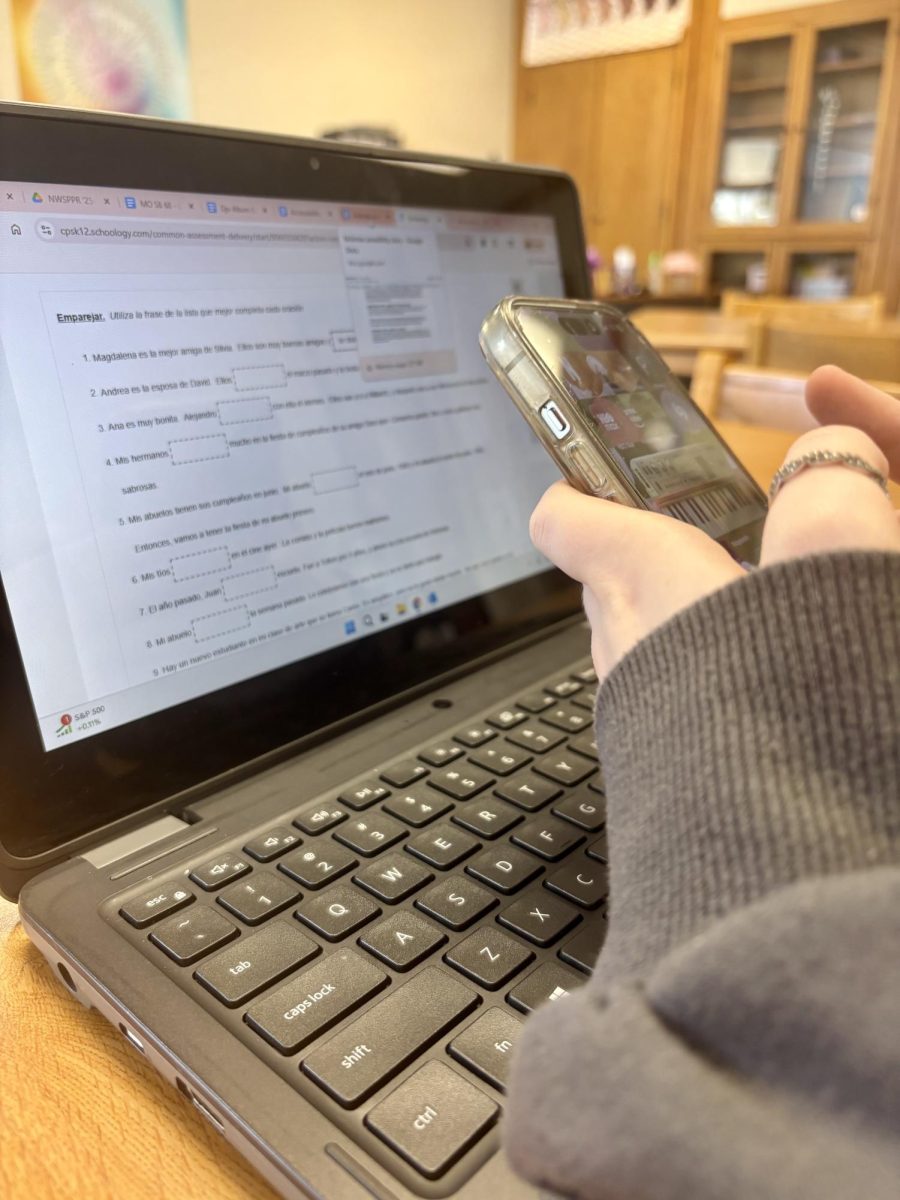



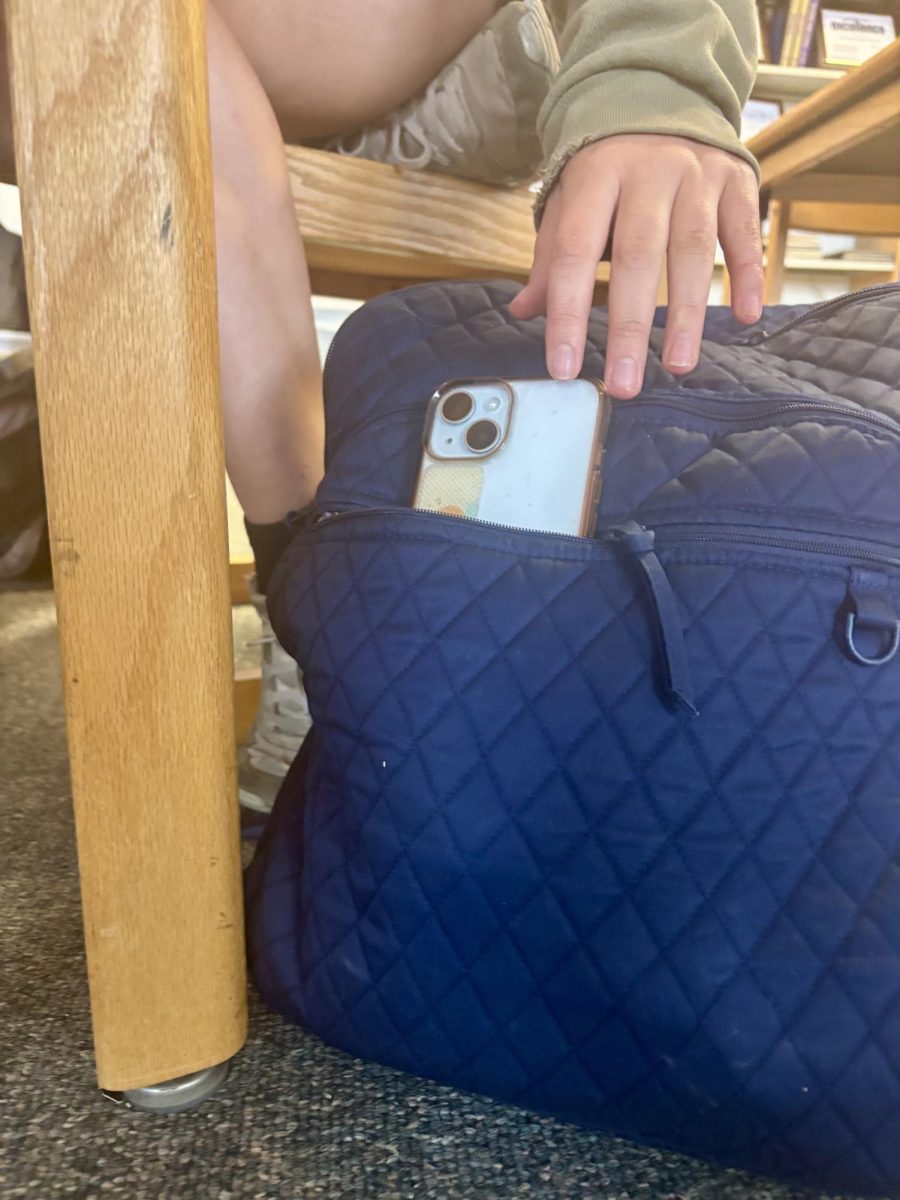
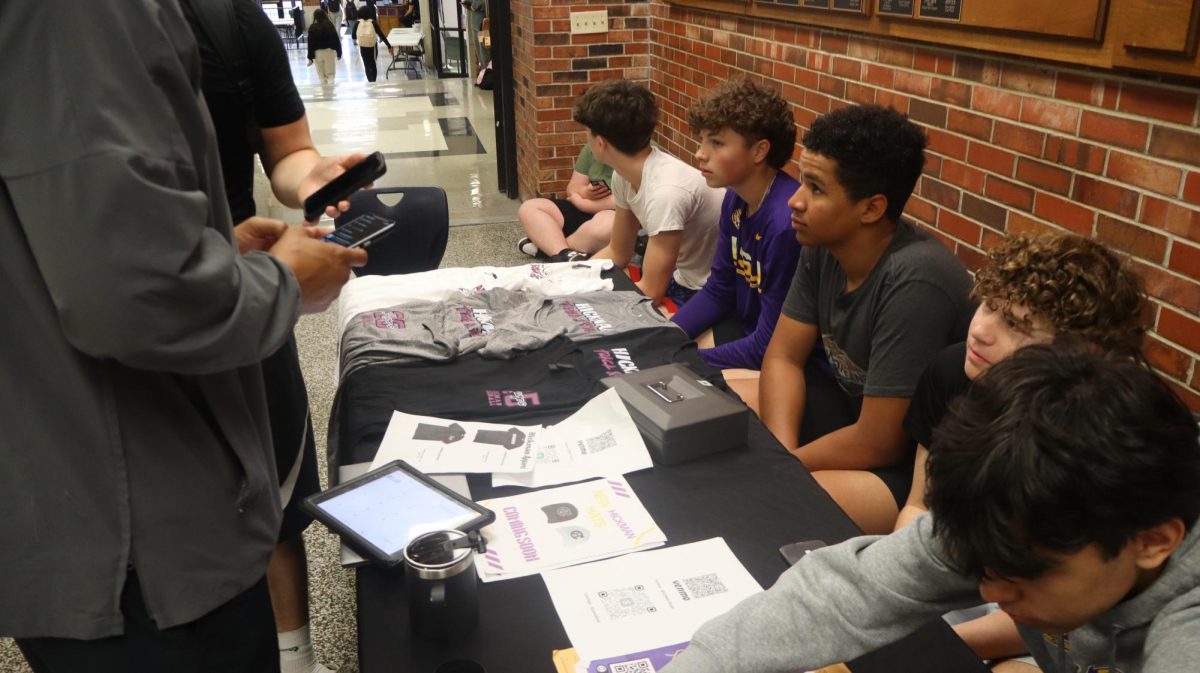
Ligma • Sep 10, 2024 at 7:28 pm
Girllll get some real opinions. Bc ain’t no way that kid ain’t got a phone and ain’t no way this is the students response. Ask around and get their real opinion. Even tho you won’t cause you don’t wanna hear the truth.
Ashley Yargus • Sep 12, 2024 at 11:41 am
Hello! And thank you for your comment. Reporters at the P&G adhere to strict journalistic ethics and do not falsify quotes from sources. This article is not an opinion piece, but a news report on a new policy at Hickman. Reporters are students at Hickman and certainly want to know they truth about how the student body feels about important issues. They also seek to find a variety of perspectives and opinions in their reporting as evidenced by the number of sources in the article. If you disagree with the perspectives presented, our staff would love for your to write a letter to the editor sharing your feelings about the policy. You can email your letter to hhsnewspaper.cpsk12.org. We do not guarantee publication, but we do value student voice and would love to hear from you.